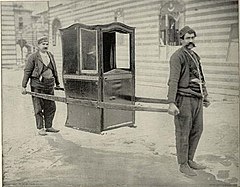[Greek] ἑδραῖος (hedraios), [Latin] statuere, [Latin] firmus, [Latin] inmobiles: steadfast, firm, settled, sitting, support, moral fixidity, set in place; 1Cor.7:37, 1Cor.15:58, Col.1:23

Be firm and steadfast fully devoted to the Lord, knowing that in the Lord your labor is not in vain. (1Cor.15:18) Oftentimes, we may not see the fruits of the seeds of faith which we plant in others.
Background information:
Greek Hellenism: This term means sitting, seated, settled, steadfast, sedentary, and unmovable. Plato’s Republic 407b states “This excessive care for the body that goes beyond simple gymnastics is the greatest of all obstacles. For it is troublesome in household affairs, military service, and sedentary offices in the city. It puts difficulties in the way of instruction, thinking, or private meditation. Xenophon’s Constitution of the Lacedaimonians 1.3 states “The rest of the Greeks expect their girls to imitate the sedentary life that is typical of handcraftsmen to keep quiet and do wool-work. How then is it to be expected that women so brought up will bear fine children?”
New Testament: This term means standing firm, being firm, and firmly grounded (with conviction). Paul offers advice (and his opinion) about the state of life that God calls you to be in. Paul calls upon one to live a life free of anxieties. An unmarried woman (virgin), anxious about the things of the Lord, should remain in this state. One who remains firm in this vocation will do well. Paul urges adherence to Christ in faith. Paul offers his wisdom in saying that one’s efforts to do the work of the Lord will not be in vain. We oftentimes may not see these “fruits” of our actions.
Scripture:
“The one who stands firm in his resolve, however, who is not under compulsion but has power over his own will, and has made up his mind to keep his virgin, will be doing well.” 1Cor.7:37
Paul offers his advice for virgins to follow their state in life to serve the Lord. Paul says this also acknowledging that unmarried daughters were often betrothed to sons of other families. These betrothals were often seen as contractual arrangements between families.
“Therefore, my beloved brothers, be firm, steadfast, always fully devoted to the work of the Lord, know that in the Lord your labor is not in vain.” 1Cor.15:58
This scriptural insight offers great consolation and comfort regarding our efforts in serving the Lord. This insight is comforting for each of us who wonder if we are actually making a difference in others’ lives. (Many times that voluntary high school RE teacher asks himself/herself this question when trying to teach teenagers!) This gives us comfort in knowing that these efforts are not in vain after all.
Etymology: The Latin words for this term all convey a sense of durability and strength. The related Latin sedes (seat) comes from the verb sedere. The sedan was originally a covered chair on poles. The Greek hedra means seat. This gives rise to the Greek kathedra (cathedral), meaning chair or seat of authority. The cathedral is the seat of authority of a bishop. The parish church is the seat of authority of a priest.

Conclusion:
Statue, statute, firm, stable, stability, immobile, sedentary, sedan, cathedral
It was interesting to discover that the ancients also believed in the balance of gymnastics (care of the body) with education, music, and poetry (care of the mind). I think Plato provides timeless wisdom in saying that excessive physical training can be potentially harmful. It is also quite amusing to see that there were desk jobs in ancient Greece. It seems like that sedentary life can be applicable to various socio-economic classes.
Aside from family obligations and betrothal arrangements, Paul opines that singleness (single vocation) is the preferred state in serving the Lord. (I myself, having a lay single vocation, would agree with Paul). Those who remain firm in this will do well in life. Paul also addresses the timeless concerns of those who are involved in ministry: “Am I making a difference in my efforts to teach others the faith?”
I myself can readily identify with these feelings. For many years (1993-2012), I had taught high school RE classes to 9th and 10th graders. I often wondered if I was getting through to my students. This scripture passage provides reassurance for each of us who are involved in ministry. So our efforts are actually not in vain during those times when we wonder if we are actually planting seeds of faith in others. In fact, one of my past students had decided to enter St. Mary’s Seminary in Houston, Texas. Again, I cannot begin to even speculate if I had any part in this. I just don’t know. But God knows!
Current events: In this toxic climate of cancel culture, boycotts are occurring as a result of others being offended by certain values or associations with President Trump. After the president of Goya had given Trump some praise, then it had to follow that Goya had to be boycotted. A pizza restaurant in Long Island happened to have a Trump flag. Therefore, it was “necessary” for this establishment to be boycotted. However, this caused a backlash of support, resulting in a buycott of Goya products and pizzas. These supporters were steadfast in their support against these offended and triggered people. We must be steadfast and firm against this cancel culture.
So keep planting those seeds of faith. This is no time to sit down (being sedentary) and rest on our laurels!
